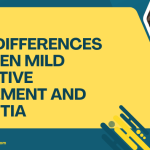Understanding Palliative Care
Palliative care is a specialized approach aimed at enhancing the quality of life for patients facing serious illnesses, including advanced neurodegenerative conditions such as Alzheimer’s disease, Parkinson’s disease, and amyotrophic lateral sclerosis (ALS). Unlike curative treatments that focus on eliminating disease, palliative care emphasizes symptom relief, emotional support, and the holistic well-being of the patient and their family.
“Palliative care is not about giving up; it’s about living fully and with dignity.”
Recent studies indicate that early integration of palliative care can significantly improve the overall quality of life for patients. According to the World Health Organization (WHO), it is essential to address pain and other distressing symptoms at every stage of illness, not just at the end of life. Additionally, emerging research suggests that incorporating palliative care early in the treatment process can lead to better management of symptoms and quality of life even in the presence of progressive diseases. For further insights on the importance of neuro care, visit Top 5 Reasons Neuro Care is Essential to Modern Medicine.
Effective Communication
Effective communication is the cornerstone of palliative care, especially when dealing with neurodegenerative diseases, which can significantly impact cognitive functions. Here are some strategies for fostering clear dialogue:
- Active Listening: Encourage patients and their families to express their concerns and feelings. Validate their experiences and emotions.
- Use Simple Language: Avoid medical jargon when explaining conditions and treatment options. Use straightforward terms to ensure understanding.
- Regular Updates: Keep family members informed about changes in the patient’s condition and any adjustments to the care plan.
“Communication is the bridge between confusion and clarity.”
By fostering an open communication environment, caregivers can build trust and ensure that the patient’s values and preferences are respected throughout their care journey. For more on effective communication in neuro care, check out Top 5 Ways Caregivers Enhance Neuro Care Effectiveness.
Symptom Management
Managing symptoms is a vital aspect of palliative care for neurodegenerative diseases. Patients often experience a range of physical and psychological symptoms that can be distressing. Here are some key strategies:
| Symptom | Management Strategies |
|---|---|
| Pain | Use medications (e.g., NSAIDs, opioids) and therapies like acupuncture. |
| Fatigue | Encourage scheduled rest periods and gentle exercise. |
| Depression & Anxiety | Consider counseling, medication, and mindfulness practices. |
| Difficulty Swallowing | Work with a speech therapist to modify diets and improve swallowing techniques. |
“Proactive symptom management can transform a patient’s experience and enhance their quality of life.”
By addressing these symptoms proactively, caregivers can enhance the patient’s comfort and overall quality of life. Also, explore Top 5 Benefits of Early Intervention in Neuro Care for more on early management strategies.
Psychosocial Support
Neurodegenerative diseases can take an emotional toll on both patients and their families. Providing psychosocial support is crucial for coping with the challenges that arise. Here are some effective strategies:
- Counseling Services: Encourage patients and families to engage in counseling or therapy to process their emotions and develop coping strategies.
- Support Groups: Connecting with others facing similar challenges can provide emotional relief and practical advice. Look for local or online support groups for neurodegenerative diseases.
- Respite Care: Offering short-term relief for caregivers can help prevent burnout and maintain their well-being, allowing them to provide better care.
“Support is not just a safety net; it’s a lifeline for families navigating neurodegenerative diseases.”
For additional resources, consider visiting the National Alliance for Caregiving for support information. You might also find value in Top 5 Myths About Neuro Care Debunked, which addresses common misconceptions surrounding neuro care.
Advanced Care Planning
Advanced care planning is essential for ensuring that a patient’s wishes are honored, especially as their condition progresses. Here are key components to consider:
- Living Wills: Encourage patients to document their preferences regarding medical treatment, life support, and resuscitation efforts.
- Healthcare Proxy: Help patients designate a trusted individual to make healthcare decisions on their behalf if they become unable to communicate.
- Regular Review: Revisit and update advance care plans as the patient’s condition changes, ensuring that their wishes remain relevant.
“Planning ahead empowers patients and brings peace of mind to families.”
Engaging in advanced care planning empowers patients and their families, providing peace of mind and clarity during challenging times. For a deeper dive into care planning and its benefits, refer to Top 5 Benefits of Regular Neuro Check-Ups for Your Health.
Conclusion
Palliative care for advanced neurodegenerative conditions is a compassionate approach that prioritizes comfort, dignity, and quality of life. By implementing effective communication, symptom management, psychosocial support, and advanced care planning, healthcare providers and families can collaboratively foster an environment of support for patients during their journey.
“Every moment counts; let’s make them meaningful.”
If you or a loved one is navigating the complexities of a neurodegenerative disease, consider reaching out to palliative care specialists for guidance. They can tailor a care plan that meets individual needs and ensures that every moment counts. For more insights on neuro care, visit Neuro Care: A Guide to Brain Health.
Feel free to share your thoughts or questions in the comments below! Your experiences can help others who are on a similar journey.






